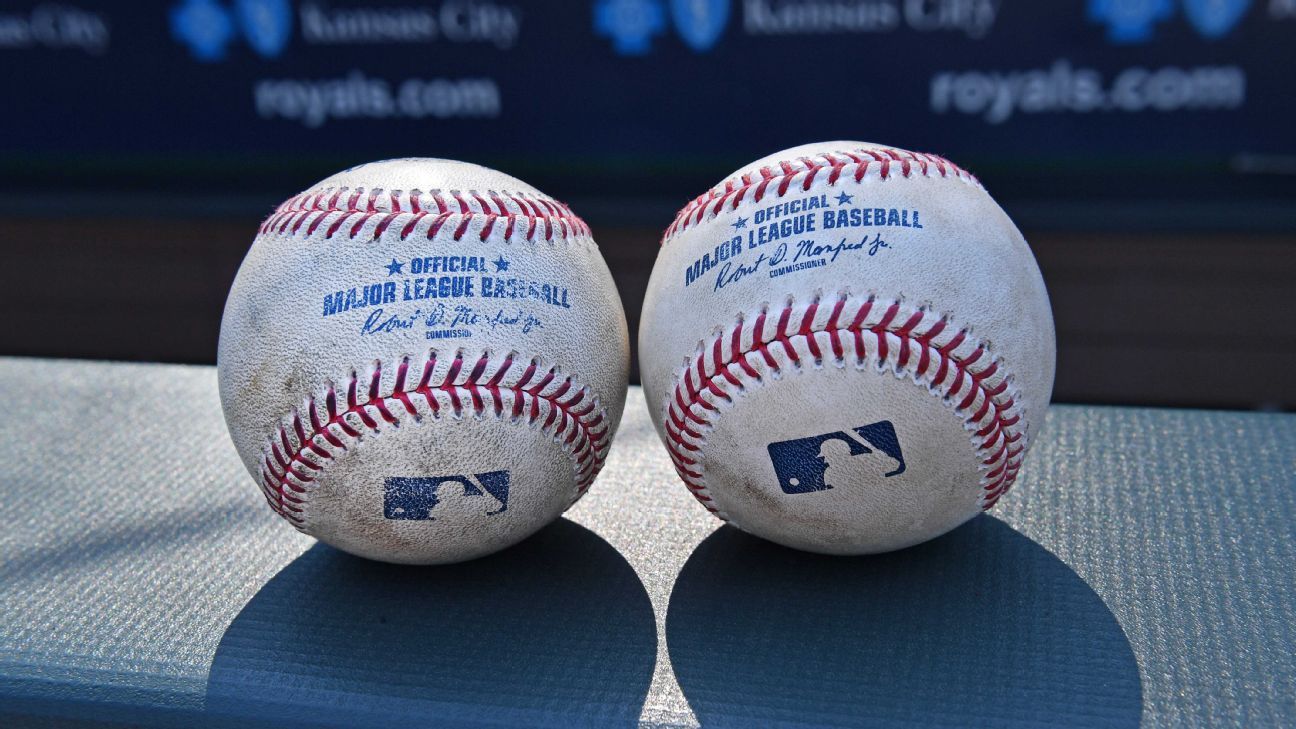The Major League Baseball Players Association delivered a return-to-play proposal to MLB on Sunday that
includes a 114-game season,
deferred salaries in the event of a canceled postseason and the option for all players to opt out of a potential 2020 season due to coronavirus concerns, sources familiar with the details told ESPN.
The proposal, which was the first from the union and came on the heels of an MLB plan that was loudly rejected by the players, comes at a seminal moment as baseball tries to become
the first major American professional sport to return.
Although the players expect the league to reject it, they hope it will serve as a bridge to a potential deal this week.
The 114-game season, which under the union's proposal would run from
June 30 to Oct. 31, is expected to be immediately dismissed by the league; MLB has proposed an 82-game season and suggested that
the more games teams play this year, the more money they lose. The union remains steadfast that players should receive their full prorated salaries, while MLB's plan included significant pay cuts that affected the highest paid players the most but covered all levels.
The inclusion of potential deferrals in Sunday's proposal was an acknowledgement by the players that amid the coronavirus pandemic and unrest around the country, cash-flow issues could prove problematic for owners. The deferrals would occur only if the playoffs were canceled, a concern the league has voiced, and would total $100 million. They would apply to players whose contracts call for $10 million-plus salaries and include interest to make them whole.
Deferrals could be part of any counter from the league, which had not officially responded to the union's proposal Sunday. With the desire to start a season by the first week of July, both parties recognize that time is of the essence for a deal.
While MLB's 67-page health-and-safety protocol draft included
the ability for high-risk players -- those with preexisting conditions or family members more susceptible to COVID-19 -- to opt out of the season, the union's proposal suggests that players can do so and receive salary. Players not deemed high risk would be able to opt out but would not receive salary.
Other parts of the players' proposal, sources said, include:
- Expanded playoffs for two years; MLB's proposal suggests one year of a postseason that goes from 10 teams to 14.
- A salary advance of $100 million to split among players during the so-called "spring training 2.0" that leads up to the regular season.
- Additional commitment to players wearing microphones on the field and other broadcast enhancements.
- An offer to hold events such as an offseason All-Star Game or Home Run Derby to generate additional revenue.
